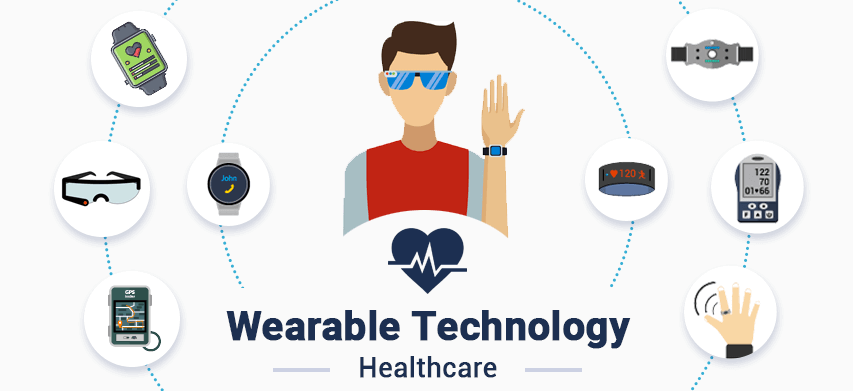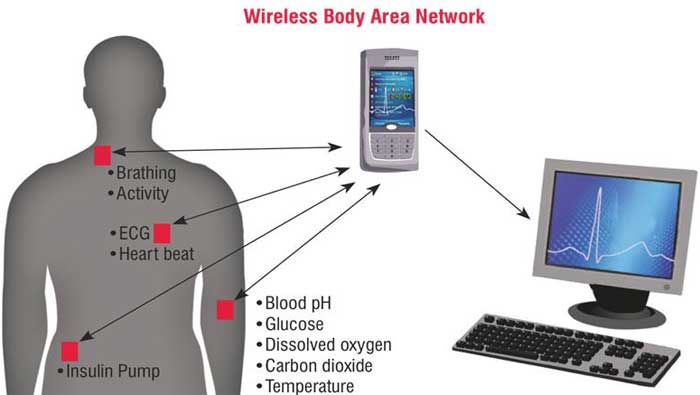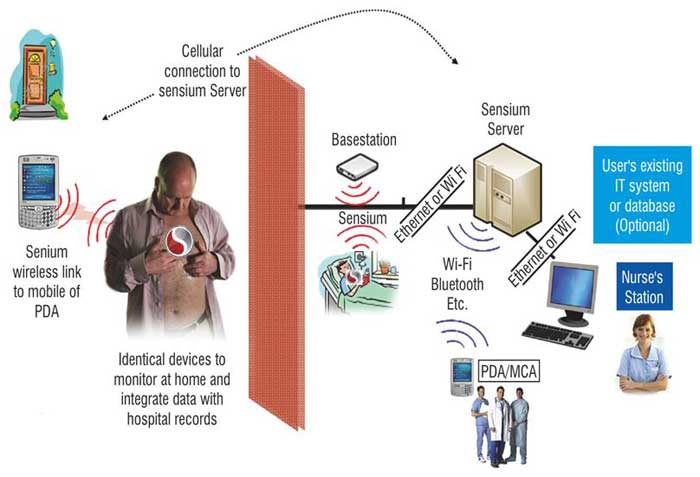Consumer Electronics for Health: Revolutionizing Wellness and Medical Care

The healthcare industry is undergoing a significant transformation, thanks in large part to consumer electronics for health. From wearable health monitors to smart medical devices, innovations in consumer electronics are not only enhancing the way we track our health but also changing how we approach wellness, diagnosis, and treatment. In this article, we will explore the growing role of consumer electronics in healthcare, the benefits they offer, and the cutting-edge technologies driving this revolution.
What are Consumer Electronics for Health?
Consumer electronics for health, often referred to as health tech, include devices designed to monitor, manage, and improve the health and well-being of individuals. These devices are typically user-friendly, offering consumers a way to track vital signs, physical activity, and other health metrics without needing professional medical intervention.
These electronics often feature wireless capabilities, allowing users to access real-time data on smartphones, tablets, or computers. They are designed not only for everyday consumers but also for those with specific health concerns, including chronic disease management and post-surgery recovery.
Key Categories of Consumer Electronics for Health
- Wearables: Devices that are worn on the body and track various health metrics, such as heart rate, sleep patterns, and physical activity.
- Wireless Medical Devices: Gadgets that use wireless technology to transmit data for remote monitoring and analysis.
- Personal Health Monitoring Systems: These devices allow consumers to monitor critical health parameters like blood pressure, glucose levels, or ECG remotely.
- Smart Medical Equipment: Cutting-edge tools designed for diagnosing and treating medical conditions at home or in non-clinical settings.
Why is Health Tech Gaining Popularity?
The rise of consumer electronics in healthcare is driven by several factors, all of which point toward the increasing need for more personalized and accessible healthcare. Let’s dive deeper into the key reasons why health tech is becoming more essential in modern healthcare.
1. Empowering Patients with Control
With health tech, individuals can monitor their health more actively. Devices like fitness trackers and smartwatches allow consumers to keep tabs on their heart rate, activity levels, and even blood oxygen saturation. This increased access to personal health data enables individuals to make informed decisions about their wellness and seek medical attention when necessary.
2. Reducing Healthcare Costs
By providing early detection of potential health issues and enabling remote monitoring, health tech can help reduce unnecessary visits to the doctor or hospital. This can result in significant savings in both healthcare costs and time for patients. Furthermore, telemedicine and remote consultations made possible by health tech allow healthcare providers to monitor patients from a distance, improving efficiency and reducing overhead costs.
3. Enhancing Chronic Disease Management
Devices like smart glucose monitors for diabetics or wearable heart monitors for people with heart conditions are revolutionizing the way chronic diseases are managed. These devices can provide continuous, real-time data on the user’s condition, enabling quicker intervention if a problem arises and reducing the risk of complications.
4. Real-time Health Data
Consumers no longer have to wait for an appointment to receive critical health updates. With wearable health tech devices, people can receive real-time feedback on their health, which allows for instant interventions. For example, smartwatches can alert users about irregular heartbeats, sleep disorders, or stress levels before they become more serious issues.

Types of Consumer Electronics for Health
There’s a wide variety of consumer electronics that are designed to promote and monitor health. Here are some of the most popular categories:
1. Wearable Fitness and Health Trackers
Wearables are perhaps the most well-known category of health tech. They are available in various forms, including smartwatches, fitness bands, and rings. Some of the most popular devices include:
- Fitbit: Known for its fitness trackers and smartwatches, Fitbit monitors heart rate, step count, calories burned, and even sleep patterns.
- Apple Watch: With its ECG monitoring, blood oxygen level tracking, and fall detection features, the Apple Watch is an all-in-one health tool for everyday users.
- Oura Ring: A sleek wearable that focuses on monitoring sleep and activity levels. It tracks heart rate variability, body temperature, and movement patterns to provide users with personalized insights.
2. Smart Thermometers and Health Monitoring Devices
Devices that measure vital signs like body temperature, blood pressure, and blood sugar levels are crucial for individuals managing chronic health conditions. Some examples include:
- Withings Thermo: A smart thermometer that provides precise readings and tracks body temperature over time. It syncs data with your smartphone for easy access to health trends.
- Omron Blood Pressure Monitor: Omron’s automatic blood pressure monitors offer clinically accurate measurements and allow for easy tracking at home.
3. Wireless Medical Devices
Wireless medical devices use Bluetooth or Wi-Fi to connect with smartphones and transmit data to healthcare professionals or caregivers. These devices are particularly useful for people who need regular monitoring or have chronic conditions. Examples include:
- Wireless Blood Glucose Monitors: Devices like Freestyle Libre allow users to monitor their glucose levels without the need for constant finger pricks.
- Wireless Pulse Oximeters: These devices measure blood oxygen levels and can be used by people with respiratory conditions, such as asthma or COPD.

4. Smart Medical Equipment for Home Use
Advances in medical equipment are enabling consumers to take charge of their healthcare at home. Some of the most innovative devices include:
- Telehealth Devices: These allow patients to consult with healthcare professionals remotely. Devices like iHealth’s Pulse Oximeter or Stethoscopes help healthcare providers conduct assessments from afar.
- Personal ECG Monitors: Devices like KardiaMobile enable users to take ECG readings at home, providing data on heart health that can be sent directly to a healthcare professional.
5. Smart Sleep Devices
Sleep is an essential aspect of health, and there are numerous consumer electronics designed to monitor and improve sleep quality. These include:
- Sleep Trackers: Devices like the Oura Ring and SleepScore Max track sleep stages, quality, and duration, offering personalized advice on improving sleep.
- Smart Mattresses: Products like Eight Sleep feature built-in temperature regulation, monitoring, and adjustment to optimize the sleep experience.
Benefits of Using Consumer Electronics for Health
Consumer electronics for health bring several benefits to individuals looking to improve their wellness and manage their conditions. Here are some key advantages:
1. Real-time Data Collection
The ability to collect and access health data in real time is one of the most significant benefits. Wearables and health monitors provide continuous data on health metrics, making it easier to detect issues early and take action before they become more serious.
2. Improved Compliance and Motivation
With smart health devices, users are more likely to adhere to prescribed treatments and recommendations. Devices that track progress and provide feedback encourage better health habits, whether it’s staying active or managing a chronic condition.
3. Remote Healthcare and Telemedicine
Remote monitoring and telemedicine capabilities reduce the need for frequent hospital visits, offering patients more convenience and access to care from the comfort of their home.
4. Personalized Health Insights
Health tech devices analyze data and provide users with tailored health advice, making it easier for individuals to understand their health needs and make informed decisions about their lifestyle.
Challenges and Considerations
While the benefits of consumer electronics for health are numerous, there are also some challenges and considerations to keep in mind:
- Data Privacy and Security: With health data being transmitted via the internet, ensuring the privacy and security of that information is a top priority.
- Accuracy: Not all health tech devices offer the same level of accuracy. It’s essential to choose devices that are clinically validated, especially for managing critical health conditions.
- Cost: While some health devices are affordable, others can be expensive. Consumers should consider their health needs and budget when investing in these technologies.
FAQs
Q1: Can consumer electronics replace regular medical check-ups?
While health tech devices are excellent for tracking and monitoring health, they cannot replace regular visits to healthcare providers. They should be used as a complement to professional care, not a substitute.
Q2: Are wearable devices accurate for tracking health?
Many wearable devices are clinically validated and offer fairly accurate readings. However, it’s important to remember that they may not always match the precision of medical-grade equipment.
Q3: How can health tech improve chronic disease management?
Health tech provides continuous monitoring, helping users manage their conditions better. For example, a smart glucose monitor can alert individuals when their blood sugar is out of range, prompting timely action.
Conclusion
Consumer electronics for health are revolutionizing the way we approach healthcare and wellness. From wearables that track activity to smart medical devices that monitor vital signs, these innovations are making healthcare more accessible, efficient, and personalized. As health tech continues to evolve, we can expect even greater advances that will further enhance the
way we care for ourselves and manage our health.
For more information about how health technology is changing the landscape of healthcare, check out this article from Asian Health Care Management.

